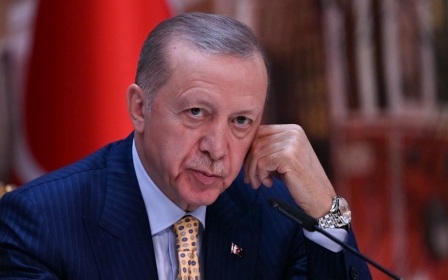Israeli press review: Court acquits policeman who sparked protests with killing of Israeli-Ethiopian teen

Officer who killed Israeli-Ethiopian teen escapes conviction
A police officer who fatally shot an Israeli-Ethiopian man in 2019 in Haifa was acquitted of involuntary manslaughter in a Haifa court on Tuesday, the Israeli paper Ynet reported.
The verdict by the judge, Zaid Falah, which came after five years of court proceedings, was a shock to the family of the victim Slomon Taka. As the verdict was read out, Taka's father walked out of court, later telling Galaz Radio: "The trial was not honest and professional. Today for us is a second death."
Taka was 18 at the time of his death. He was alleged to have thrown rocks towards the officer who killed him. His killing sparked massive protests among the Israeli-Ethiopian community, who railed against discriminatory policing.
"Now all policemen have the authority to shoot our kids," Taka's sister said after the trial.
Stay informed with MEE's newsletters
Sign up to get the latest alerts, insights and analysis, starting with Turkey Unpacked
Ofer Cassif, a member of parliament from the Hadash party, drew a comparison between the policing methods against Israeli-Ethiopians and Israeli forces' treatment of Palestinians.
"The killing started and continued with the Palestinians, went to men with disabilities like Iyad al-Halak and Yehoda Biadga and ended with the murder of Yuval Kastelman. It will only get worse," Cassif wrote on X.
Jerusalem protests draw rebuke from centrist politicians
Israeli officials have reacted with concern to the large protests in Jerusalem this week, which demanded the return of captives from Gaza and the resignation of Prime Minister Benjamin Netanyahu.
Tens of thousands of people gathered in central Jerusalem over four days this week. On Monday, demonstrators met outside Netanyahu's home, with the Walla news site reporting that there were violent confrontations between protesters and the police.
"We should not accept any violence from either side, shouldn't accept disregard to police instructions and breaking through police barriers like we saw yesterday," Benny Gantz, a member of the war cabinet, posted on X.
Chili Tropper, an MP from Gantz's party, added on Facebook: "The violent protest last night could tear Israel apart."
Ronan Bar, head of the Shin Bet domestic security agency, warned that there was a "clear line" between legitimate demonstrations and a violent and illegal protest.
"This concerning trend could lead to dangerous places that should not be reached," he said.
Gantz, a former military chief of staff, heads the centre-right National Unity party. Before the 7 October Hamas-led attack and war on Gaza, he was a prominent opponent of Netanyahu, but is now part of his war cabinet.
Gilad Kariv, an MP from the opposition Labor party, took to X to ask why Gantz was criticising the protests rather than Netanyahu.
"It is completely improbable that centrist politicians give a boost to the poison machine's campaign against the democratic protest and ignore ongoing police violence and false arrests," he said.
More restrictive rules passed in parliament
A controversial law was passed on Thursday that critics have said is tantamount to annexing the occupied West Bank.
According to a Ynet report, the law will enable the government to instruct municipalities near the Green Line, which divides Israel from the occupied West Bank, to transfer some of their funding to settlement municipalities in the Palestinian territory.
"The law seriously harms the legitimacy of Israel internationally," Merav Michaeli, leader of the Labor party, said.
"It is a de facto annexation that applies Israeli law to Judea and Samaria, contrary to everything permitted by international law," she added, using the Israeli name for the West Bank.
Another controversial law was passed that means anyone convicted in a terrorism case will not be able to live in an area that a victim lives.
According to Srugim, an Israeli news site, the law will enable the government to keep people convicted of terrorist offences away from areas that their alleged victim resides, works or studies in.
"We think that terrorists should die, but unfortunately today there is really no death penalty for terrorists, and it doesn't matter how many Jews the terrorist kills, he may one day be freed in some deal and walk among us again," said Limor Son Hr-Melh, from the far-right Jewish Power party.
"The law... seeks to find a little justice for the victims of terrorism and their families."
Middle East Eye delivers independent and unrivalled coverage and analysis of the Middle East, North Africa and beyond. To learn more about republishing this content and the associated fees, please fill out this form. More about MEE can be found here.


.jpg.webp?itok=KQX9Yv3l)
.jpg.webp?itok=nYw1U0Jz)

